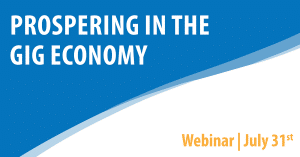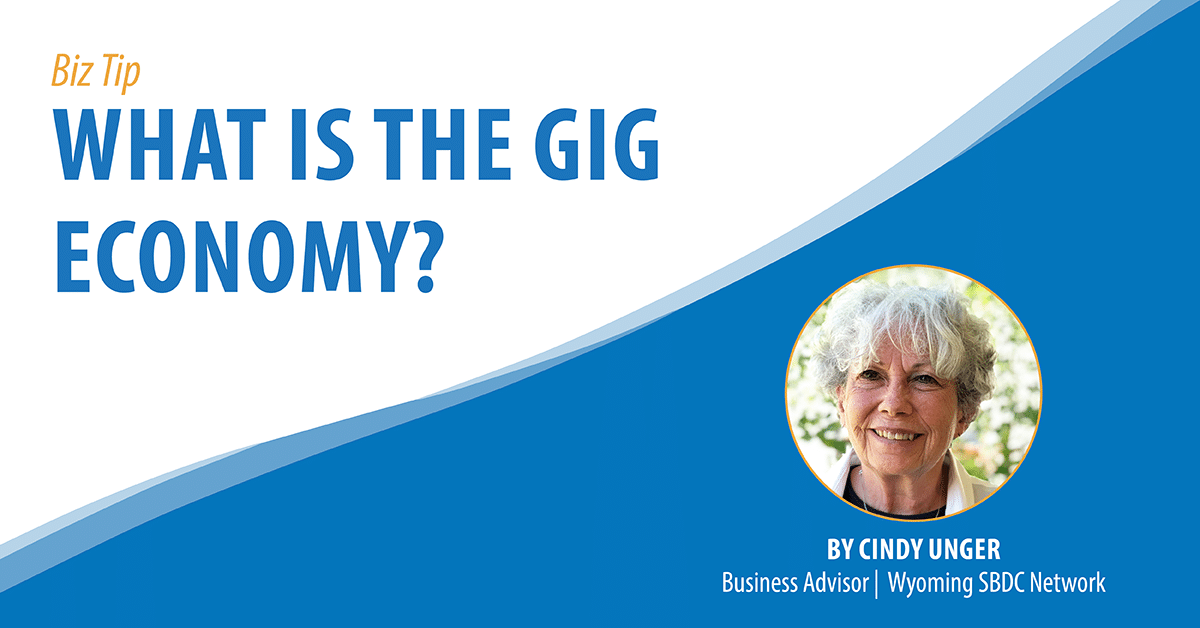In a gig economy, companies hire independent contractors and freelancers to complete temporary, flexible jobs, as opposed to full-time employees. One result of these shifts is the proliferation of small entrepreneurs that require little or no capital to start-up. To learn how to take advantage of this trend, we first have to answer “what is the gig economy?”
What is the Gig Economy?
The term “gig economy” became popular during the 2008-2009 financial crisis, although the concept has been around for a long time. During the financial crisis, many who suddenly faced unemployment or underemployment picked up temporary jobs in order to cobble together an income. As a result, current concepts of employment have changed. Although traditional employment — where many workers have the same employer for the bulk of their working career — remains the norm, frequently changing jobs is now acceptable, as is making one’s living independently through short-term gigs with different organizations. According to a 2018 survey of 6,000 U.S. workers done by Upwork — an online network that links freelancers to employers and the Freelancers Union — there are 56.7 million freelancers in the United States, representing one in three U.S. workers, and numbers are increasing.
Who is Freelancing Now?
Traditionally, professionals such as musicians, photographers, writers, and truck drivers have always fit into the gig worker category. According to Upwork, the most popular freelance occupations today include designers and creatives, website and software developers, administrative support specialists, writers and translators, accounting and finance professionals, and IT and networking personnel. Other popular areas include sales, legal, delivery drivers, engineers, and architects. According to a survey done by the Mckinsey Global Institute, 70% of self-employed workers had intentionally chosen that status, either as a primary or supplemental income source. The remaining 30% were categorized as “reluctants,” who would prefer to be in a traditional job situation.
Pros and Cons for Freelancers
There are both positive and negative aspects to the gig economy for both workers and employers. The interesting thing is that an advantage to one worker or company may be a disadvantage to another. For example, freelancers tend to prioritize lifestyle over earnings. For some gig workers, however, the volume and time deadlines for various gigs can easily disrupt their work/life balance. Flexibility may mean that workers have to be available any time a gig comes up and must always be hunting for the next job.
Freelancers enjoy flexibility in lifestyle and the opportunity to try out different jobs or projects. The gig economy can benefit workers, businesses, and consumers by making work more adaptable and flexible to the needs of both companies and workers. As opposed to “being a good employee,” however, workers now have to develop their own brand. In addition, they lack the security of a steady job with regular pay and benefits, routine, and must shoulder a larger share of market risk in terms of economic ups and downs. For full-time employees, the gig economy can make career development more difficult, since temporary employees are often cheaper to hire and have more flexible availability.
Pros and Cons for Employers
On the corporate side, employers can save money and take advantage of specialized expertise by hiring part-time or temporary employees to handle periods of high volume or for specific projects, but the use of many short-term personnel may erode long-term relationships between workers, clients, and vendors. An advantage for companies hiring gig workers is that risk may be transferred from the organization to the individual. The other side of that coin is that the company only has contracted control over the ultimate product or service (Gig workers need to be careful to protect themselves with insurance).
Start Prospering in the Gig Economy
 If you are a gig economy entrepreneur, are interested in becoming one, or are a business that utilizes various temporary services, do not miss the upcoming Wyoming Small Business Development Center (SBDC) Network webinar on July 31 titled Prospering in the Gig Economy. The program features Kim Merritt, who will speak in-depth about online websites that can match entrepreneurs with gig jobs and business projects with the talent to complete them.
If you are a gig economy entrepreneur, are interested in becoming one, or are a business that utilizes various temporary services, do not miss the upcoming Wyoming Small Business Development Center (SBDC) Network webinar on July 31 titled Prospering in the Gig Economy. The program features Kim Merritt, who will speak in-depth about online websites that can match entrepreneurs with gig jobs and business projects with the talent to complete them.
You can also contact your local Wyoming SBDC Network advisor to receive no-cost, confidential advice and technical assistance on starting your own business or hiring employees by clicking here.
About the Author: Cindy has been helping Wyoming entrepreneurs start or improve their businesses for the past 17 years. An entrepreneur herself, she thrives on the challenge of understanding each new business and business owner and helping them to succeed. Currently the owner of several rental properties, she has owned a number of other small businesses, including a want ad newspaper, a secretarial service, and a stained glass studio.






